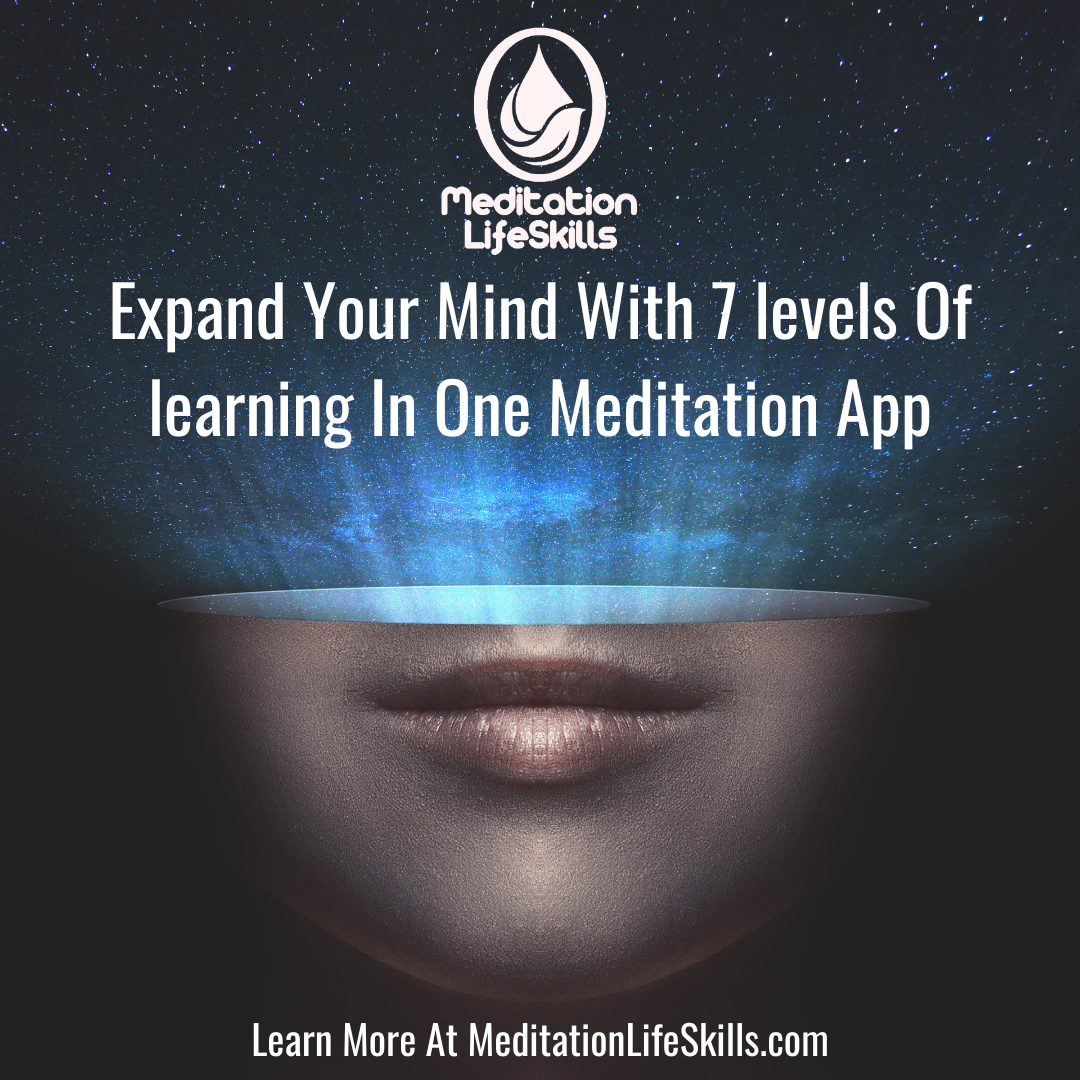
Join us as we explore the various factors to consider when determining the optimal duration for your meditation sessions and discover how you can harness the power of meditation to cultivate a profound sense of calm and balance in your life.
Whether you're a beginner or an experienced meditator, understanding the nuances of time spent in meditation can significantly enhance your journey towards inner peace and self-discovery.
In today's fast-paced world, finding moments of calm and introspection is becoming increasingly crucial. Meditation has emerged as a powerful tool for achieving mental clarity, reducing stress, and enhancing overall well-being.
As more individuals recognize its immense benefits, the question of how long one should meditate for maximum results has become a topic of great interest.
While there is no one-size-fits-all answer, this article aims to shed light on the ideal duration for meditation sessions, ensuring you unlock the full potential of your practice.
Understanding meditation and its benefits
Meditation is an ancient practice that involves training the mind to achieve a state of deep relaxation and heightened awareness. It has been practiced for thousands of years and is deeply rooted in various spiritual traditions. In recent years, meditation has gained mainstream popularity due to its proven benefits for promoting overall well-being.
Scientific research has shown that regular meditation can have a positive impact on both physical and mental health. It has been found to reduce stress, anxiety, and depression, improve concentration and focus, enhance emotional well-being, and even boost the immune system.
Moreover, meditation is a powerful tool for cultivating mindfulness, which allows individuals to become more present and aware of their thoughts, emotions, and actions.
The science behind meditation
To understand the optimal duration for meditation, it's important to delve into the science behind the practice. When we meditate, our brain undergoes certain changes that contribute to the therapeutic effects of the practice.
During meditation, the brain enters a state of deep relaxation, characterized by an increase in alpha brain waves. Alpha waves are associated with a calm and focused state of mind. As we continue to meditate, the brain transitions into an even deeper state known as the theta state. In this state, the brain produces theta brain waves, which are associated with deep relaxation, creativity, and enhanced intuition.
The duration of meditation plays a crucial role in accessing these deeper states of consciousness. It takes time for the brain to relax and enter these states, and longer meditation sessions allow for a greater depth of experience. However, it's important to strike a balance and find a duration that works for your individual needs and lifestyle.
How long should you meditate?
The ideal duration for meditation varies from person to person, and there is no one-size-fits-all answer. The duration that works best for you depends on various factors, including your experience level, lifestyle, and personal preferences.
It's essential to approach meditation with an open mind and be willing to experiment with different durations to find what works best for you.
Factors to consider when determining meditation duration
When determining the optimal duration for your meditation sessions, there are several factors to consider:
1. Experience level: Beginners may find it challenging to sit for long periods, so starting with shorter sessions and gradually increasing the duration can be beneficial. On the other hand, experienced meditators may be able to sit for longer periods without feeling restless or distracted.
2. Time availability: Consider your daily schedule and find a time slot that allows you to dedicate uninterrupted time to your meditation practice. It's important to choose a time when you're least likely to be disturbed or rushed.
3. Personal goals: Determine what you hope to achieve through meditation. If you're looking to cultivate a sense of calm and relaxation, shorter sessions may be sufficient. However, if you're seeking deeper insights and spiritual growth, longer sessions may be more beneficial.
4. Physical comfort: Ensure you're physically comfortable during your meditation sessions. Sitting in a comfortable position with proper support can make longer sessions more manageable.
The benefits of shorter meditation sessions
Shorter meditation sessions can be an excellent starting point, especially for beginners. They allow you to build a consistent meditation practice without feeling overwhelmed or discouraged. Even as little as 5 to 10 minutes of daily meditation can yield significant benefits.
Shorter sessions are also more accessible for individuals with busy schedules. They can be incorporated into your daily routine, such as during lunch breaks or before bed. Short bursts of meditation throughout the day can help you maintain a sense of calm and mental clarity amidst the chaos of everyday life.
Furthermore, shorter sessions can serve as a gateway to longer meditation sessions. As you become more comfortable with the practice and experience its benefits, you may naturally feel inclined to increase the duration of your sessions.
The benefits of longer meditation sessions
While shorter sessions are valuable, longer meditation sessions offer a different level of depth and exploration. As you sit for an extended period, you have the opportunity to delve deeper into your thoughts, emotions, and inner experiences.
Longer sessions allow for a more profound sense of relaxation and can facilitate a greater sense of self-awareness. They provide a space for introspection and contemplation, allowing you to explore the depths of your mind and gain insights into your inner world.
Additionally, longer sessions provide an opportunity for sustained focus and concentration. They can enhance your ability to remain present and fully engaged in the practice, leading to a more profound meditative experience.
Finding the right meditation duration for you
Finding the right meditation duration is a personal journey that requires self-awareness and experimentation. It's important to listen to your body and intuition and adjust your meditation practice accordingly.
Here are some tips to help you find the right duration for you:
1. Start with shorter sessions: If you're new to meditation, begin with shorter sessions, such as 5 to 10 minutes, and gradually increase the duration as you become more comfortable.
2. Experiment with different durations: Set aside dedicated time to experiment with different meditation durations. Observe how your mind and body respond to each duration, and pay attention to any shifts in your overall well-being.
3. Listen to your body: Your body knows best. If you feel restless or uncomfortable during a meditation session, it may be a sign that you need to adjust the duration. Be gentle with yourself and find a duration that allows you to maintain a sense of ease and relaxation.
4. Be consistent: Consistency is key in meditation. Aim to meditate daily, even if it's just for a few minutes. Regular practice will help you establish a routine and deepen your meditation experience over time.
Tips for maintaining a consistent meditation practice
Maintaining a consistent meditation practice can be challenging, but with the right strategies, it becomes more manageable.
Here are some tips to help you stay committed to your meditation practice:
1. Set realistic goals: Start with small, attainable goals that fit into your lifestyle. For example, commit to meditating for 5 minutes each day and gradually increase the duration as you progress.
2. Create a dedicated space: Designate a specific area in your home for meditation. Make it a peaceful and inviting space that encourages a calm and focused mindset.
3. Establish a routine: Incorporate meditation into your daily routine. Find a time that works best for you, whether it's in the morning, during lunch breaks, or before bed. Consistency is key to establishing a habit.
4. Use guided meditations: If you're finding it challenging to meditate on your own, use guided meditation apps or recordings. These resources can provide structure and guidance, making it easier to maintain focus during your sessions.
5. Practice mindfulness throughout the day: Meditation isn't limited to your formal sitting practice. Cultivate mindfulness in your daily activities by bringing your attention to the present moment. This can be as simple as focusing on your breath or fully immersing yourself in each task you undertake.
Other factors to enhance your meditation experience
In addition to duration, there are other factors that can enhance your meditation experience:
1. Breathing techniques: Experiment with different breathing techniques to deepen your meditation practice. Techniques such as deep belly breathing or alternate nostril breathing can help calm the mind and relax the body.
2. Meditation aids: Consider incorporating meditation aids such as cushions, blankets, or eye masks to create a more comfortable and conducive environment for your practice.
3. Meditation apps and resources: Explore the vast array of meditation apps and resources available. These tools can provide guided meditations, music, and other techniques to enhance your practice.
4. Join a meditation group: Consider joining a local meditation group or attending meditation retreats. Being part of a community can provide support, accountability, and the opportunity to learn from experienced practitioners.
Conclusion: The importance of finding your own meditation routine
- In conclusion, the optimal duration for meditation varies from person to person.
- It's essential to approach meditation with an open mind and be willing to experiment with different durations to find what works best for you.
- Whether you prefer shorter sessions to incorporate into your daily routine or longer sessions for a deeper exploration of the self, finding your own meditation routine is key to unlocking the full power of meditation.
- Remember, the journey of meditation is a personal one, and there are no right or wrong answers. Allow yourself to be present, patient, and compassionate as you embark on this transformative practice.
With time and dedication, you will discover the ideal duration that allows you to cultivate a profound sense of calm, balance, and self-discovery in your life. So, take a deep breath, find a comfortable seat, and let the power of meditation guide you on your path to inner peace and well-being.

















